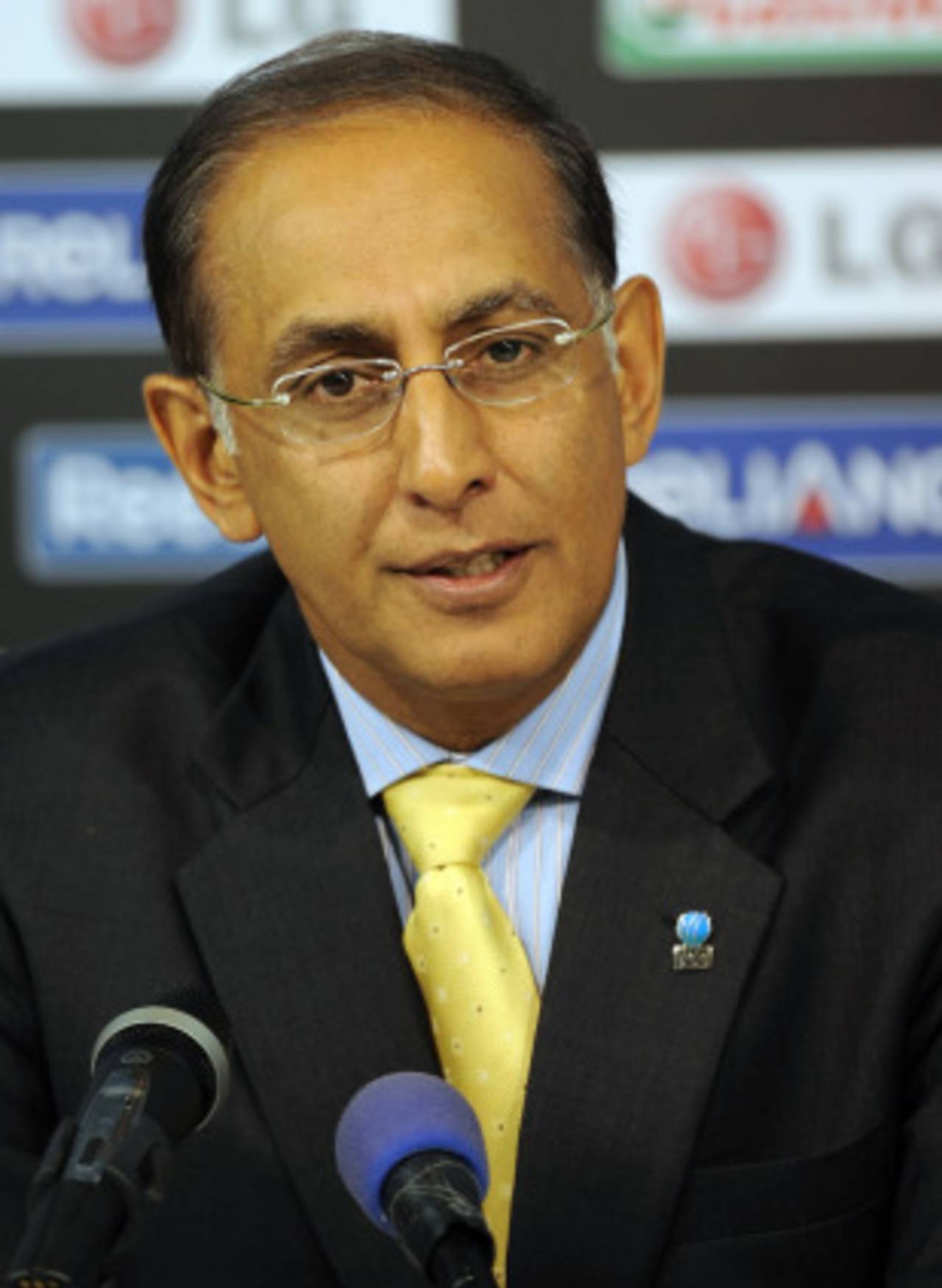'Money is important, but it's not the only thing'
Haroon Lorgat talks about the postponement of the Test Championship over commercial concerns, and why he didn't seek an extension to his tenure

"In my view we should not begrudge India its commercial strength; rather we should celebrate such economic power" • AFP
My term of office ends in June of next year. In late 2010 I had agreed on an additional one year to my initial contract, which was due to expire in June 2011. At the time I believed I would not have been able to properly complete a new ICC strategy for 2011-2015, and, importantly, the spot-fixing matter was not concluded. Hence I agreed on a one year extension. We have now reached a stage where the strategy is well understood internally and is progressing well in its implementation, and thankfully the spot-fixing trial is behind us. I therefore feel it is the right time to move on.
I can assure you that is no reason for my departure. I am of course disappointed that it will not happen in 2013 because I believe we needed urgency to create context in order to promote Test cricket. A Test World Championship would have been the ideal culmination for teams competing over a period to achieve a top-four ranking and then progress to the playoffs and the eventual champion team.
This was considered but not supported by the ICC board and the Chief Executives' Committee.
A balanced mindset would have been a lot better. Money is clearly an important factor but it should not be the only factor. We looked at different models of evaluating the revenue implications but the fact is that the value of an inaugural Test Championship comprising four teams and fewer matches is not viewed the same commercially as the Champions Trophy comprising eight teams.
I still believe that a ten-team World Cup on a qualification basis for all Members would be a better event. This was part of the proposals to strategically restructure international cricket and was designed to protect and promote all three formats. In my view, the top four teams in a Test playoff, the top 10 teams in the 50-over format and the top 16 teams in the Twenty20 format is the most suitable structure and would create excellent context, as every match would count towards qualifying for a global event. We must ensure quality games with no mismatches, and I believe that fewer teams are able to compete in the longer the format. Making everyone qualify will raise playing standards overall. Since the Full Members believed they deserved automatic entry, it is obvious that the 50-over World Cup needed to be expanded [from 10 teams]. That is perfectly understandable.
No. I was backing a particular line of thinking which did not find sufficient support for implementation in 2015. It will be applied in the next World Cup, in 2019, and I still believe it is the best way to ensure the sustainability of the 50-over game. Once the Full Members were not willing to go through a qualification process, I was in favour of 14 teams.
The main objection was that a ten-team event would require [some] Full Members to qualify. Their belief was that there was a long-standing expectation that Full Members automatically play in the World Cup, and that therefore [we] needed sufficient notice before we can change this practice. This is why the ten-team World Cup will start from 2019.
At the end it was unanimous - to go with the 14-team format, although initially there was strong support from countries like Australia, New Zealand and England for a ten-team event with qualification. But ultimately it was a unanimous decision to go with 14 teams.

There is a lot of interest and support for the governance review and it is one of the key initiatives agreed in the new strategy. At this stage it is not possible for me to speculate but I do know that Lord Woolf is on track to report at the next board meeting. As for accepting change, it will take vision and courage from the board to openly consider the recommendations for the good of the game.
It is not ideal when you are not sufficiently empowered to undertake or implement what you know is correct and must be done. But I understood that when I entered the ICC, and it is why the ICC board rather than the executive [is] held accountable for the future of the game.
This must be the most frequently asked question and I seem unable to convince you that we share a very cordial relationship in spite of the debates we have. It's not me that was humiliated - rather it is the team that faced criticism.
Malcolm's view is shared by many and is accurate. However, in my view we should not begrudge India its commercial strength; rather we should celebrate such economic power. What we should be concerned about is the weakness of the other Members that leads to leadership and governance challenges.
We cannot carry out sting operations or arrest people or seize property. That is not within our remit or powers. This was made clear by the members when the ACSU was established. Corruption is a serious challenge and we must not be complacent but remain vigilant to combat this menace. While there may be exceptions, I firmly believe that the vast majority of players and officials are honest and play the game in great spirit, and it is most unfair on these players to cast doubt on them. I do believe that the recent convictions will send a strong message to all involved in the game. You can rest assured that we will not tolerate corruption.
Nagraj Gollapudi is an assistant editor at ESPNcricinfo